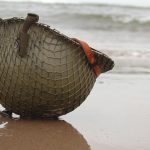Death toll from Israeli attack on Beit Lahiya raised to 93 – Gaza media office
Al Jazeera has spoken with the director-general of the Gaza government’s media office, Ismail al-Thawabta, who has said at least 93 people were killed in the Israeli airstrike on northern Gaza’s town of Beit Lahiya. Gaza’s health ministry said earlier today that 60 people were killed in the strike this morning, which hit a residential building housing displaced civilians. Al-Thawabta said that the building Israel attacked housed 200 people. Dozens of people are reported missing and 150 others estimated to be injured. Medics said 20 children were among the dead.
Many of those injured have been rushed to nearby Kamal Adwan hospital inside the Jabalia refugee camp. But the hospital is struggling to treat them as it reportedly has run out of medical supplies and only has two paediatric doctors, with no surgeons. Israeli forces detained dozens of medical staff at the hospital days ago. Dr Hossam Abu Safiya, director of the hospital, told Al Jazeera on Friday that most of the surgeons had been arrested by Israeli troops, meaning urgent surgeries could not be performed.

Key events
The Qatari foreign ministry has said Qatar will work with Joe Biden’s administration “until the last minute” to reach a Gaza ceasefire deal.
“We don’t foresee any negative result of the elections on the mediation process itself. We believe that we are dealing with institutions, and in a country like the United States, the institutions are invested in finding a resolution to this crisis,” ministry spokesperson Majed Al-Ansari told a press conference. Former Republican president Donald Trump is in a tight race with US vice president, Kamala Harris.
As my colleague Andrew Roth notes in this story, there is considerable doubt that the White House under either candidate will be prepared to meaningfully rein in Israeli prime minister Benjamin Netanyahu and find a diplomatic solution to Israel’s wars in Gaza and Lebanon.
Israel and Hamas accused each other of making new and unacceptable demands over the summer and negotiations ground to a halt in August.
Netanyahu has previously been accused of blocking a ceasefire deal over his insistence on continued Israeli control of the Philadelphi corridor, which separates Gaza from Egypt, and central Gaza’s Netzarim corridor, a strategic route bisecting Gaza.
Hamas has demanded a full Israeli withdrawal from the Gaza Strip and Egypt has said that a heavy Israeli military presence on its border threatens the peace treaty between the countries.
Summary of the day so far…
-
An Israeli attack on a residential building sheltering displaced civilians in northern Gaza’s town of Beit Lahiya is reported to have killed 93 people, including 20 children, according to medics. Dozens of people are reported missing and 150 others estimated to be injured. The Israeli military is yet to comment on the deadly airstrike. Nearby Kamal Adwan hospital is struggling to treat people injured in the attack as it reportedly has run out of medical supplies and only has two paediatric doctors, with no surgeons.
-
The attack came a day after Israel’s parliament passed a law to ban the UN Palestinian refugee agency (Unrwa) from operating inside the country, alarming many of Israel’s allies who fear it will worsen the already dire humanitarian situation in Gaza. The Turkish foreign ministry said earlier today that the move aimed to disrupt efforts to reach a two-state solution. Jordan’s foreign ministry said Monday’s vote was “part of the systematic targeting” of Unrwa and a “continuation of Israel’s frantic efforts to assassinate the UN agency politically, in addition to its aggressive war on the Palestinian people”.
-
Hezbollah said it chose deputy secretary general, Naim Qassem, to succeed Hasan Nasrallah as leader of the Lebanese militant group after Nasrallah was killed in an Israeli airstrike on south Beirut last month.
-
Lebanese state media reported that Israeli tanks have rolled into the outskirts of the village of Khiam, in what is thought to be their deepest incursion yet into south Lebanon in the ground assault launched last month.
Israeli tanks enter outskirts of Khiam in deepest incursion yet into southern Lebanon – media
Lebanese state media reports that Israeli tanks have rolled into the outskirts of the village of Khiam, in what is thought to be their deepest incursion yet into south Lebanon in the ground assault launched last month.
The state-run National News Agency (NNA) reported the entry of “a large number of tanks belonging to the Israeli occupation army” into the eastern outskirts of Khiam, about six kilometres (nearly four miles) from the border with Israel.
The Israeli military has issued evacuation orders for a number of villages in southern Lebanon, the NNA reported. They are: Tayr Harfa, al-Jabin, al-Qasr al-Ahmar, Jabal al-Batm, Zebqin, Sheheen, al-Himyari, al-Kharib, Ansar, Mataria al-Shomr, Adloun, Majdal Zun, Shama, Abu Shash, al-Naqoura and Alma al-Shaa.

Lisa O’Carroll
Lisa O’Carroll is a senior correspondent for the Guardian
The incoming European council president António Costa is visiting Dublin today and will discuss the latest Middle East crisis.
The Irish taoiseach Simon Harris said he will urge him to “use all levers” to effect change in the middle east.
He said:
Unfortunately we meet the day after Israel voted for a horrific escalation in suffering by effectively banning Unrwa.
I strongly condemn the passage of the legislation in the Israeli Knesset. If implemented, it will make it impossible for Unrwa to carry out its vital role across the region. If Unrwa cannot carry out its mission, more innocent people will die.
A barrage of projectiles was fired from Lebanon into northern Israel on Tuesday, killing at least one person in the town of Maalot, Israeli emergency services and the military said.
“We saw an unconscious male with no pulse and no breathing… but his injury was critical and we had to pronounce him deceased,” Israel’s Magen David Adom ambulance service said.
MDA Spokesperson: Update to the Red Alert sirens in Maalot
MDA EMTs and Paramedics have reported a male with no signs of life and a number of anxiety patients. Updates to follow pic.twitter.com/lBgy4OOth4
— Magen David Adom (@Mdais) October 29, 2024
Separately, the Israeli military said about 50 projectiles had been identified crossing from Lebanon into the Upper and Western Galilee regions on Tuesday morning.
Death toll from Israeli attack on Beit Lahiya raised to 93 – Gaza media office
Al Jazeera has spoken with the director-general of the Gaza government’s media office, Ismail al-Thawabta, who has said at least 93 people were killed in the Israeli airstrike on northern Gaza’s town of Beit Lahiya. Gaza’s health ministry said earlier today that 60 people were killed in the strike this morning, which hit a residential building housing displaced civilians. Al-Thawabta said that the building Israel attacked housed 200 people. Dozens of people are reported missing and 150 others estimated to be injured. Medics said 20 children were among the dead.
Many of those injured have been rushed to nearby Kamal Adwan hospital inside the Jabalia refugee camp. But the hospital is struggling to treat them as it reportedly has run out of medical supplies and only has two paediatric doctors, with no surgeons. Israeli forces detained dozens of medical staff at the hospital days ago. Dr Hossam Abu Safiya, director of the hospital, told Al Jazeera on Friday that most of the surgeons had been arrested by Israeli troops, meaning urgent surgeries could not be performed.
Houthi rebels launch drones towards Israeli city of Ashkelon
Yemen’s Iran-backed Houthi rebels have confirmed that they carried out a drone attack on southern Israel on Tuesday morning.
A Houthi military statement read:
The UAV (drone) force of the Yemeni Armed Forces carried out a specific military operation targeting the industrial zone of the Israeli enemy in the Ashkelon region.
The Houthis claimed the attack “was carried out with a number of drones that have successfully achieved their objectives”.
Israel’s military said earlier that the drone “fell in an open area” of Ashkelon, just north of the Gaza Strip.
The Houthi rebels, who have being attacking ships crossing the Red Sea since last November, say they are acting in solidarity with Palestinians in Gaza and in support of Lebanon against Israeli attacks.

Lisa O’Carroll
Ireland’s foreign minister said he would be pressing ahead with work on legislation which would sanction exports from the occupied Palestinian territories.
With an election expected to be called next week, there is not enough time to pass the Occupied Territories bill, but Micheál Martin said he hoped it would get to the committee stage before that with amendments drafted to make it constitutionally and legally robust.
The bill, which was first proposed in 2018, has already passed through the Irish senate but remained in abeyance in the Dáil until it was given the go ahead by the attorney general two weeks ago following the International Court of Justice ruling in July on “unlawful” occupation of Palestinian territories.
He said officials would be meeting with legal advisors to further progress. “Hopefully we can get to a hearing stage in committee before the Dail is dissolved,” Martin said.
The bill needed to be robust enough to “withstanding any legal challenges” he said, alluding to a recent European Court of Justice ruling blocking efforts by the European Commission to include western Sahara in its trade deals with Morocco.
Western Sahara is largely controlled by Morocco but the Algeria-backed Polisario Front has campaigned for independence for the territory since before colonial ruler Spain pulled out in 1975.

Lisa O’Carroll
Lisa O’Carroll is a senior correspondent for the Guardian
Israel’s plan to ban Unrwa from any activity in Palestinian territories is “beyond concerning, beyond disappointing”, the agency’s director of communications Juliette Touma has said.
In an interview with Irish broadcaster RTE she said they had “no visibility” and “no information” on the Israeli plan following the vote in the Israeli parliament last night.
“It is beyond disappointing, it is quite frankly outrageous primarily because of the impact it is likely to have on our humanitarian operation,” she said.
Israel said it would continue to work with other UN agencies such as Unicef, but Touma said it was Unrwa which delivered programmes for Unicef on the ground, including polio vaccination.
She said:
We are talking about tens of thousands who work with the agency in Gaza. We have the infrastructure, the fleet of cars, the logistics bases. So it is very, very difficult to replace Unrwa.
And we do know from previous attempts to replace the agency or to provide humanitarian assistance in council, these attempts fail and fail miserably.
At some point during the war, we were providing shelter in United Nations buildings to over a million, but no other EU agency does that. We are the largest provider for food assistance in Gaza, the largest primary health care provider, the largest number of staff.
There has been more reaction to Israel’s decision to ban the United Nations Relief and Works Agency for Palestine Refugees, Unrwa, from operating inside of the country.
In a statement, the Turkish foreign ministry said the move aimed to disrupt efforts to reach a two-state solution to the Israeli-Palestinian conflict, adding Unrwa provided vital help to Palestinians.
“It is the legal and moral obligation of the international community to take a strong stance against attempts to ban Unrwa, which was established by a UN general assembly resolution,” the ministry said. “As the chair of the working group on the financing of Unrwa, Türkiye will continue to provide political and financial support to the agency,” it added.
Turkey has been fiercely critical of Israel’s wars in Gaza and Lebanon. It has halted all trade with Israel and applied to join a genocide case against Israel at the World Court.
Meanwhile, Jordan’s foreign ministry said Monday’s vote was “part of the systematic targeting” of Unrwa and a “continuation of Israel’s frantic efforts to assassinate the UN agency politically, in addition to its aggressive war on the Palestinian people”.
Hezbollah elects Naim Qassem, deputy secretary general, as new leader
Hezbollah, the Iranian backed Lebanese militant group, says it has chosen Naim Qassem to replace its former leader Hassan Nasrallah, who was killed in an Israeli airstrike last month.
Kassem, a longtime deputy to Nasrallah, has served as Hezbollah’s acting leader since Nasrallah’s death.
“Hezbollah’s (governing) Shura Council agreed to elect… Sheikh Naim Qassem as secretary general of Hezbollah,” Hezbollah said in a statement. Qassem was elected by the five-member Shura Council, the group’s main decision-making body, two days before Tuesday’s announcement, Agence France-Presse (AFP) reports.
Qassem, 71, was one of Hezbollah’s founders in 1982 and has been the party’s deputy secretary general since 1991, the year before Nasrallah took the helm. He was born in Beirut in 1953 to a family from the village of Kfar Fila on the border with Israel.
He was the most senior Hezbollah official to continue making public appearances after Nasrallah largely went into hiding following the group’s 2006 war with Israel.
Beit Lahiya death toll rises to 60, local officials say
At least 60 Palestinian people were killed with 17 others missing under the rubble after an Israeli airstrike hit a residential building in the northern Gaza town of Beit Lahiya on Tuesday, Gaza health ministry official Marwan Al-Hams has told journalists (see post at 07.50 for more details – a death toll of 55 was previously reported).
Outcry over Israel’s ‘devastating’ decision to ban main UN Palestinian aid agency
As we mentioned in the opening summary, the UN secretary general, António Guterres, has warned Israel’s implementation of a law banning the UN Palestinian refugee agency (Unrwa) from operating in Israel would have “devastating consequences for Palestine refugees”.
“There is no alternative to Unrwa,” Guterres said in a statement.
“The implementation of these laws would be detrimental for the resolution of the Israeli-Palestinian conflict and for peace and security in the region as a whole. As I said before, Unrwa is indispensable.”
Israel’s parliament voted on Monday to ban Unrwa from the country within 90 days, in defiance of US and other international pressure to maintain the largest provider of humanitarian assistance to the country’s Palestinian population.
The Knesset banned the UN agency from conducting “any activity” or providing any service inside Israel, including the areas of annexed East Jerusalem, Gaza and the West Bank. A second vote declared Unrwa a terror group, effectively banning any direct interaction between the agency and the Israeli state.
Unrwa head Philippe Lazzarini called the Israeli decision “unprecedented” and said it was “nothing less than collective punishment” for Palestinians. The bills “will only deepen the suffering Palestinians, especially in Gaza, where people have been going through more than a year of sheer hell”. An Unrwa spokesperson said the law would be a “disaster” and have a serious impact on the humanitarian operation in Gaza and in the occupied West Bank.
The US state department said it was “deeply concerned” by Israel’s move to ban Unrwa, with spokesperson Matthew Miller saying the agency plays a “critical, important role in delivering humanitarian assistance to civilians that need it in Gaza”.
The UK prime minister, Keir Starmer, said Britain was “gravely concerned” the bill had passed, while its foreign secretary, David Lammy, earlier on Monday suggested sanctions could be taken against Israeli politicians if Unrwa was “brought to its knees” by the Knesset’s decision.
The governments of Spain, Slovenia, Ireland and Norway jointly condemned Israel’s ban on Unrwa and said it set a “very serious” precedent for the work of the UN and all organisations of the multilateral system. Belgium said it “deeply regrets” the Knesset’s vote. Germany’s commissioner for human rights policy and humanitarian assistance said the move would be “jeopardising vital humanitarian aid for millions of people”.
Almost all of Gaza’s population of more than two million people are reliant on aid and services from Unrwa, which has provided aid, schooling, healthcare and assistance across the Palestinian territories and to Palestinian refugees elsewhere for more than seven decades. You can read more about the agency’s humanitarian activities and its deteriorating relationship with the Israeli government in this useful explainer on the bill that passed on Monday.
Israeli airstrike kills at least 55 Palestinian civilians in Beit Lahiya – reports
Here is a little more detail on the Israeli attack on Beit Lahiya this morning that, according to reports, killed at least 55 Palestinian civilians, many of whom were women and children.
Among the people who were killed included a mother and her five children, and another mother with her six children, according to an initial casualty list provided by the emergency service.
Dr Hossam Abu Safiya, the director of the nearby Kamal Adwan Hospital, said it was overwhelmed by the number of people injured in the bombing who needed treatment.
“The world must take action and not just watch the genocide in the Gaza Strip,” he told Al Jazeera. “We call on the world to send specialised medical delegations to treat dozens of wounded people in the hospital.”
Israeli troops withdrew from the Kamal Adwan hospital on Saturday, after storming the medical facility and detaining dozens of its staff.
Opening summary
Hello and welcome to the Guardian’s continuing coverage of the Middle East crisis amid Israel’s ongoing wars on Lebanon and Gaza.
At least 55 civilians, including children and women, were killed by an Israeli airstrike on the northern Gaza town of Beit Lahiya on Tuesday morning, Wafa, the Palestinian news agency, reported.
Israeli forces targeted a residential building sheltering displaced Palestinians, Wafa reported, adding that more than 20 injured people were taken to Kamal Adwan hospital, which has been hit by “continuous artillery shelling since dawn today”.
Dr Hussam Abu Safia, Kamal Adwan’s director general, told Al Jazeera that many of those injured in the attack died due to lack of resources in the hospital, which has reported dire shortages of fuel and other supplies amid relentless Israeli attacks in the area over recent weeks.
The Israeli military claims the aim of the renewed assault on the north is to prevent Hamas fighters from regrouping there. But the IDF has attacked hospitals and shelters, and food and water are running out thanks to a blockade on aid deliveries and sieges focused on northern Gaza’s Jabalia, Beit Lahiya and Beit Hanoun areas.
In other developments:
-
The UN secretary general, António Guterres, has said Israel’s implementation of a law banning the UN Palestinian refugee agency (Unrwa) from operating in Israel “could have devastating consequences for Palestine refugees” in the occupied territories and that was “unacceptable”. The Israeli legislation is expected to lead to the closure of Unrwa’s East Jerusalem headquarters and would effectively block the delivery of humanitarian aid into Gaza via Rafah in the south. The severing of diplomatic relations would preclude Israel from issuing entry and work permits to foreign Unrwa staff and prevent coordination with the Israeli military to permit aid shipments. The legislation will not come into effect immediately.
-
Unrwa head Philippe Lazzarini called the Israeli decision “unprecedented” and said it was “nothing less than collective punishment” for Palestinians. The bills “will only deepen the suffering Palestinians, especially in Gaza, where people have been going through more than a year of sheer hell”. An Unrwa spokesperson said the law would be a “disaster” and have a serious impact on the humanitarian operation in Gaza and in the occupied West Bank.
-
The Israeli military said a drone that hit the southern city of Ashkelon on Tuesday was launched from Yemen, from where Houthi rebels have mounted a drone and missile campaign in support of Hamas, the Palestinian militant group.
-
Two people were killed in an Israeli strike near Syria’s border with Lebanon, a Syrian war monitor said on Tuesday – the second strike in less than a week near a key land crossing. Israeli warplanes attacked vehicles near Al-Nazariya village in Al-Qaseer countryside along the border with Lebanon, the Syrian Observatory for Human Rights said, adding that two people in the vehicles were killed.
-
At least 60 people were killed and dozens wounded in Israeli strikes on Lebanon’s eastern Bekaa valley on Monday, according to reports. The country’s health ministry said the tolls covered several areas in the Baalbek region as its governor, Bachir Khodr, decried what he called the “most violent” raids on the area since the Israel’s assault on Lebanon was launched late last month. The Israeli military issued an evacuation order on Monday for large swathes of the southern Lebanese city of Tyre. Lebanon’s National News Agency reported “a series of strikes” on the ancient coastal city, beginning with a raid on a residential apartment which reportedly killed at least seven people.
-
About 100,000 Palestinians are trapped in northern Gaza’s Jabalia, Beit Lahiya and Beit Hanoun areas without medical or food supplies, the Palestinian Civil Emergency Service warned. It said its operations had ground to a halt because of the three-week Israeli assault into the northern part of the Strip.
-
Benjamin Netanyahu has denied reports that Israel has received a proposal that would include the release of four hostages in return for a 48-hour ceasefire in Gaza. The statement from the Israeli prime minister’s office came a day after Egypt’s president, Abdel Fattah al-Sisi, said his country has proposed a two-day ceasefire in Gaza which would entail an exchange of four Israeli hostages for some Palestinian prisoners. “If such a proposal were made, the prime minister would accept it on the spot,” Netanyahu’s office said.
-
Israel and Iran have accused each of endangering Middle East peace in a heated exchange at a UN meeting in New York, called after Israel’s Saturday attack on Iranian military targets.












